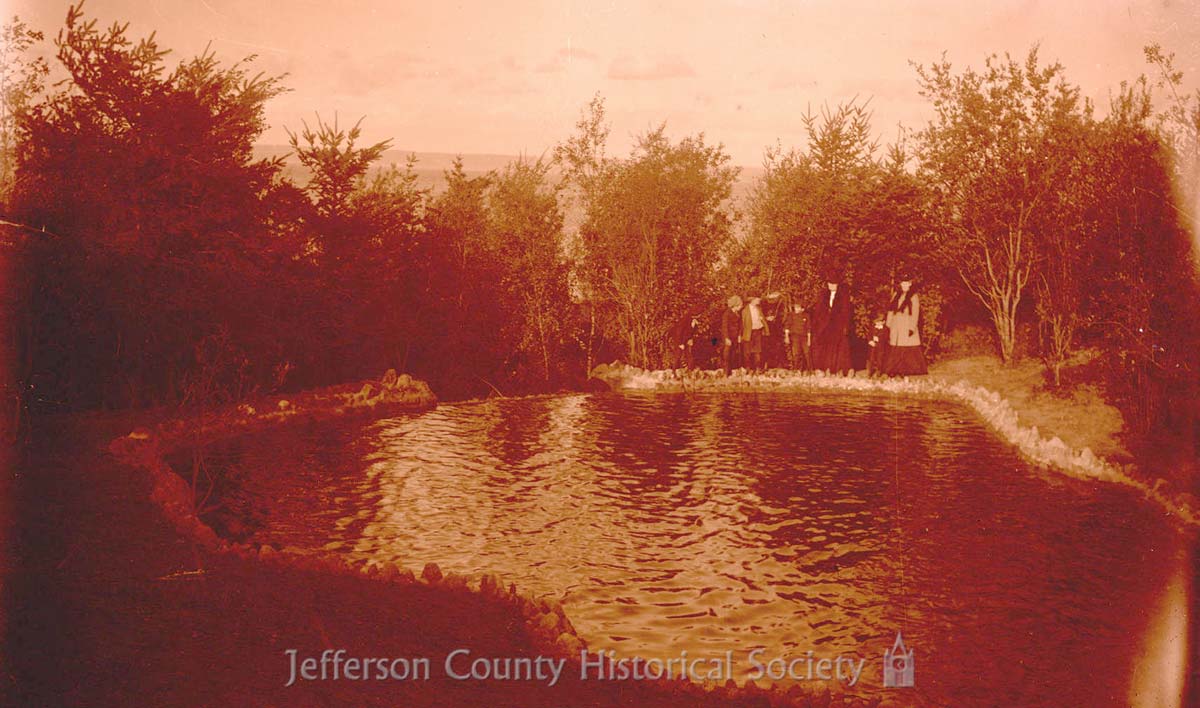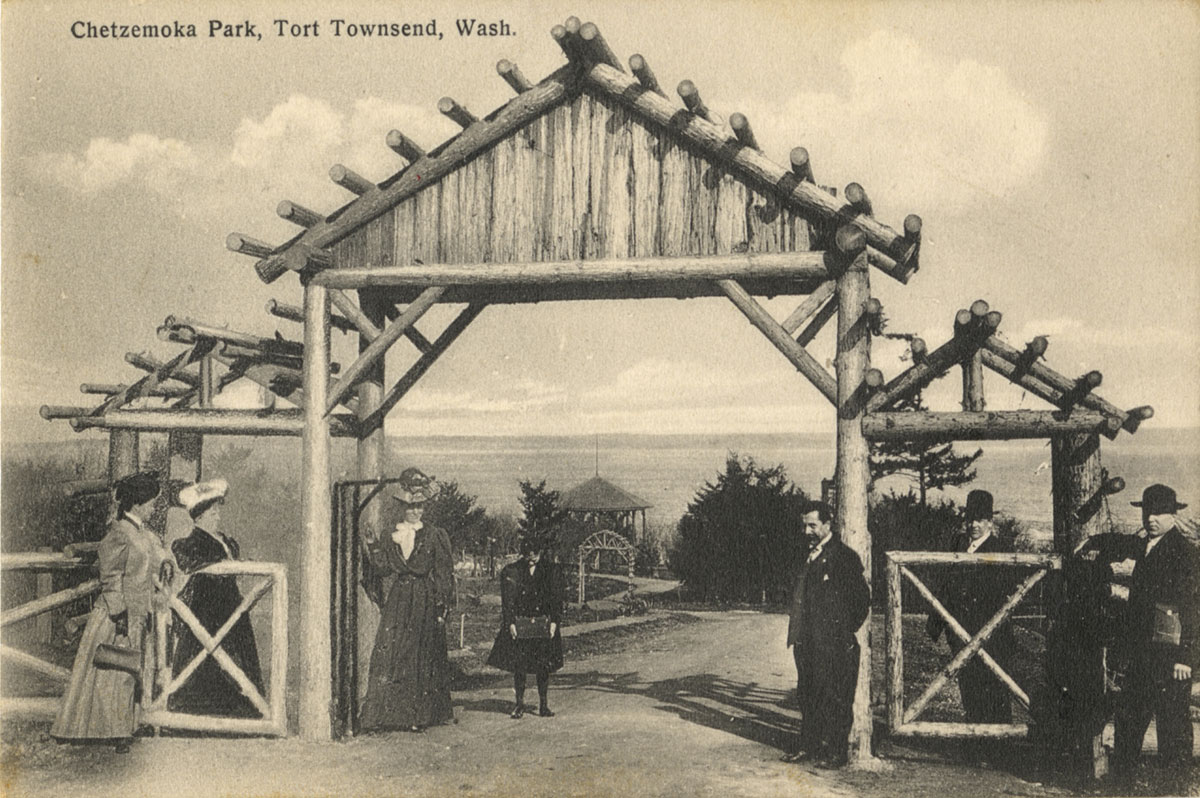Women Settlers
The impact of Port Townsend’s women activists are seen every day.
The early Port Townsend settler population consisted primarily of men, but women were also present from the early days and have had a lasting and ongoing impact on the town.
Top image: Carnegie Library (JCHS 2005.74.10)
The early Port Townsend settler population consisted primarily of men, but women were also present from the early days. Lucinda Hastings accompanied her husband, Loren, when they arrived to settle in 1852. The stories of the frontier town’s lawlessness are perhaps overplayed in popular telling. It was a community of many parts from its earliest days.

A family enjoying Chetzemoka Park (JCHS 2003.134.538)
Many of these women were employed outside the home across a gamut of trades, while others managed households and cared for the children. Some women were privileged to have the time and money to be able to contribute to the civic development of Port Townsend. Others became influential entrepreneurs.
The Washington Territory had early aspirations for women’s suffrage. The movement to give women the vote was defeated by a single vote. In 1954, the Washington Territorial Legislature considered whether to allow women to vote. Washington missed being the first to grant women suffrage by a single vote. Susan B. Anthony and Abigail Scott Duniway traveled to Washington and Oregon in 1871, fighting for the vote and founding the Washington Woman Suffrage Association. Bills were passed in both 1883 and 1888 only to be struck down by the Territorial Supreme Court. In 1910 Washington’s State Constitution was amended to finally give women the right to vote, ten years before the rest of the country.
The results of Port Townsend’s women activists are still very present. The Port Townsend Public Library was founded in 1898 by a group of local women, who by 1913 had acquired land and funding for a building, including a Carnegie grant. The library they built on Lawrence Street is still the Port Townsend library today.
Women were also instrumental in creating the city’s first public park in 1904. The Civic Improvement Club created a park on land donated by the city, with the help of both volunteers and hired labor. The park was named Chetzemoka, using the settler’s name for the S’Klallam leader čičməhán (cheech-ma-han) whom they wanted to honor.

Chetzemoka Park (JCHS 2005.75.429)
Learn More of Our History
